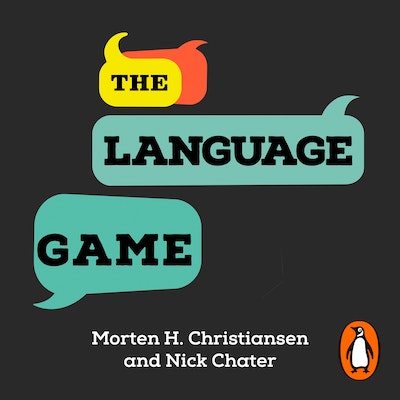- Published: 14 April 2022
- ISBN: 9781529193961
- Imprint: Transworld Digital
- Format: Audio Download
- Narrator: Peter Noble
The Language Game
How improvisation created language and changed the world
- Published: 14 April 2022
- ISBN: 9781529193961
- Imprint: Transworld Digital
- Format: Audio Download
- Narrator: Peter Noble
The Language Game is a highly original, convincing story of how humans developed their greatest invention, language. A delight to read, it deserves careful study by anyone interested in the nature, function, and origins of human communication.
Daniel Everett, author of Don’t Sleep, There Are Snakes and How Language Began
This book turned everything I thought I knew about language upside down. It's persuasive, full of fascinating details, and an absolute delight to read.
Tim Harford, author of How To Make The World Add Up
Language was the Promethean fire that ignited the human explosion. Its origin is one of the three great mysteries that still tantalise evolutionary biologists. Christiansen and Chater give a marvellously clear explanation of the problem and a generously fair treatment of rival theories, followed by a lively, even playfully persuasive advocacy of their own solution.
Richard Dawkins, author of The Selfish Gene
A joyful romp across species and cultures through the ways language is invented and reinvented, peppered with insightful stories you will feel compelled to tell anyone in earshot.
Barbara Tversky, author of Mind in Motion


